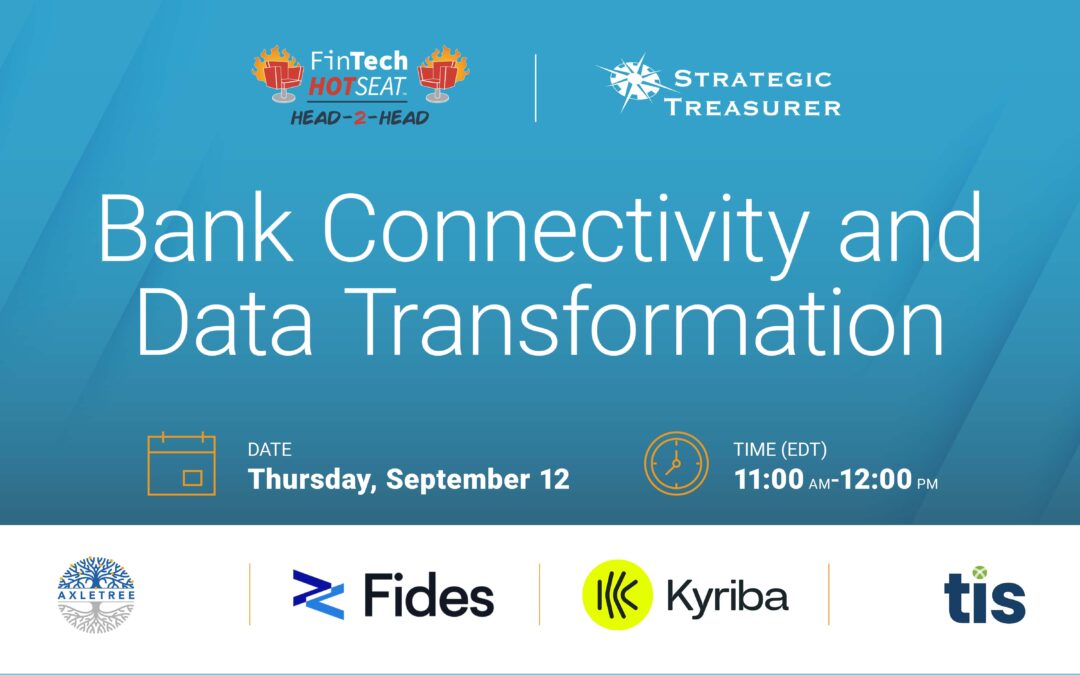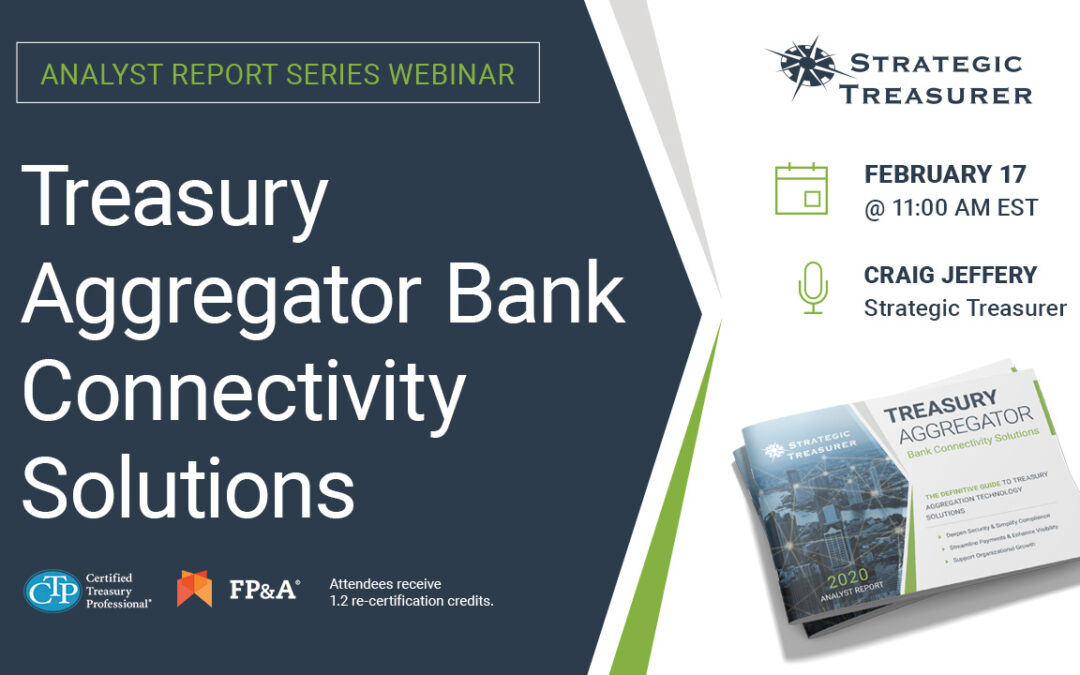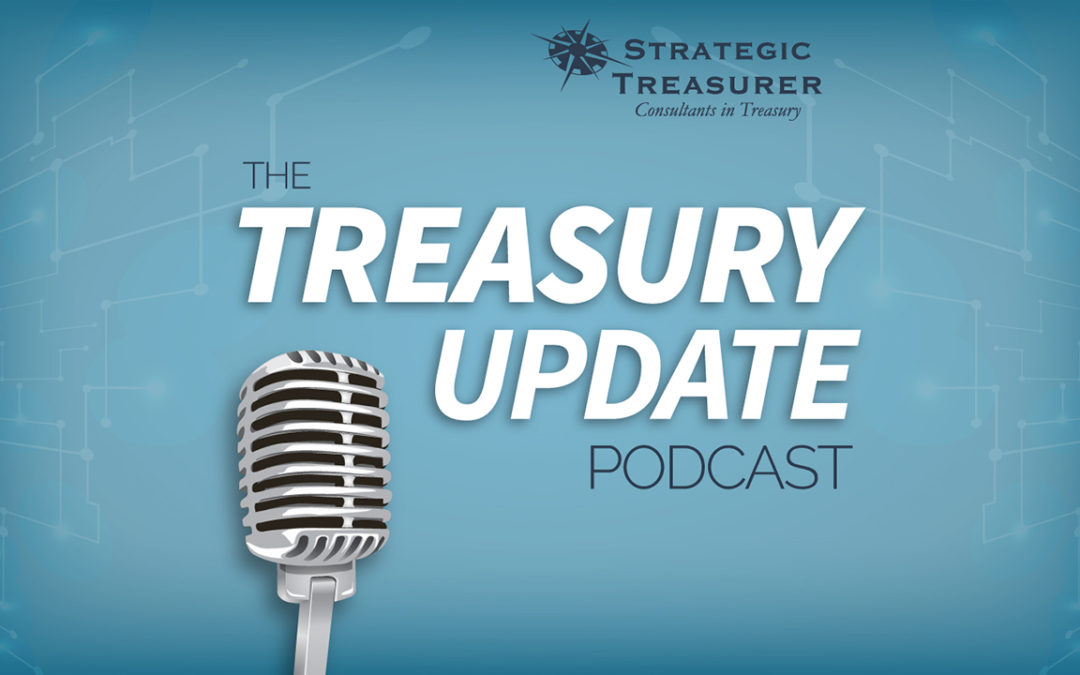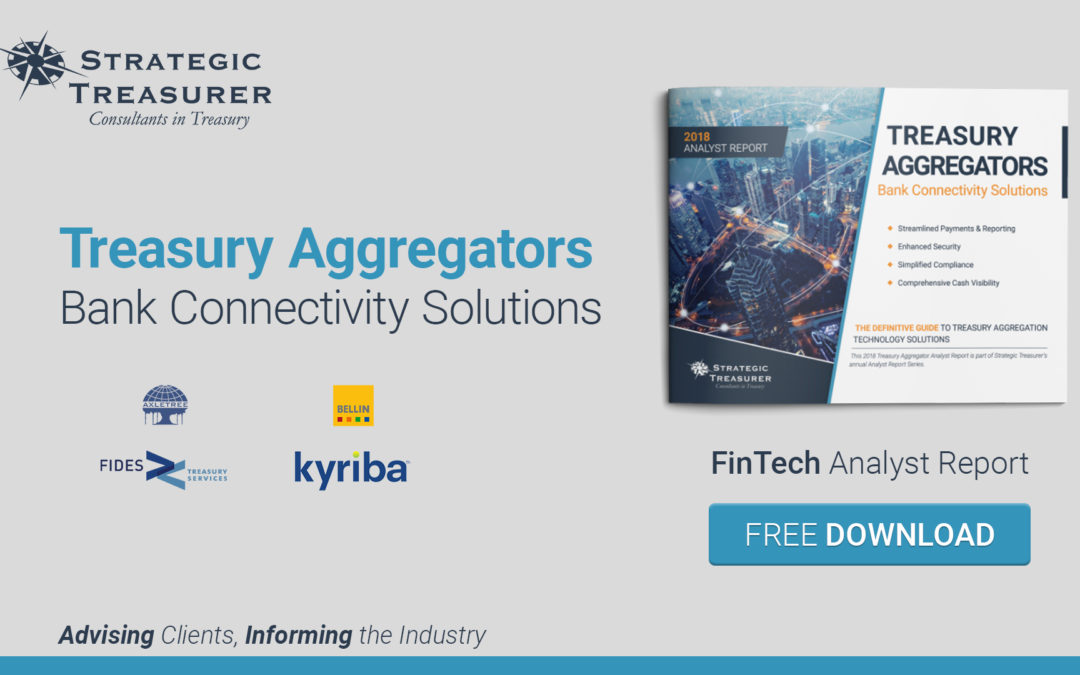
by Brian Weeks | Aug 14, 2024 | Fintech Hotseat Head-2-Head, Replay, Replays, Webinars
Watch this fast-paced Head-2-Head session on demand. In this session we explore how fintechs are addressing bank connectivity and data transformation issues in various ways, using different tools and a multiplicity of partnerships and strategies. Evaluate their approaches as they show and explain how they solve for the hyper-expanding complexity to simplify the missions of both the corporate treasurer and corporate technologist.

by Elizabeth Jeffery | Jan 8, 2021 | Replays, Webinars
Treasury departments require massive connectivity both to internal and external groups. Treasury aggregators can help. In this webinar, we discuss the pain points driving this technology, such as fraud, disparate and evolving payment formats, complexity, compliance, and staffing, along with the various way in which a treasury aggregator can address those pain points and support efficient and controlled operations. Additional topics will include the role of a treasury aggregator within the larger treasury technology landscape, factors affecting the future of aggregation, and leading practices for implementation.

by Elizabeth Jeffery | Mar 25, 2019 | Podcast
On this episode of the podcast, Craig Jeffery sits down with Lee-Ann Perkins, Assistant Treasurer of ION Geophysical, to discuss how to modernize treasury operations from a decentralized and manual treasury structure to a centralized and automated structure.

by Ky Casanova | Oct 25, 2018 | Analyst Reports
This report focuses on the FinTech solutions that provide sophisticated bank connectivity, payments, security, compliance, and cash management functionality to corporations. It analyses why aggregation technology is so important and evaluates some of the primary benefits of its use.
![Bank Connectivity: The Data Behind Where We Are & Where We’re Going [Quarterly Technology Landscape Webinar]](https://strategictreasurer.com/wp-content/uploads/Webinar-Promo-INV-bank-connectivity-062618-1080x675.jpg)
by Strategic Treasurer | Jun 5, 2018 | Replays, Webinars
This session will cover the different aspects of bank connectivity, with the data to back it up, including the current trends and what’s driving the changes in the industry. 1.2 CTP and FP&A re-certification credits will be given for this webinar.





![Bank Connectivity: The Data Behind Where We Are & Where We’re Going [Quarterly Technology Landscape Webinar]](https://strategictreasurer.com/wp-content/uploads/Webinar-Promo-INV-bank-connectivity-062618-1080x675.jpg)